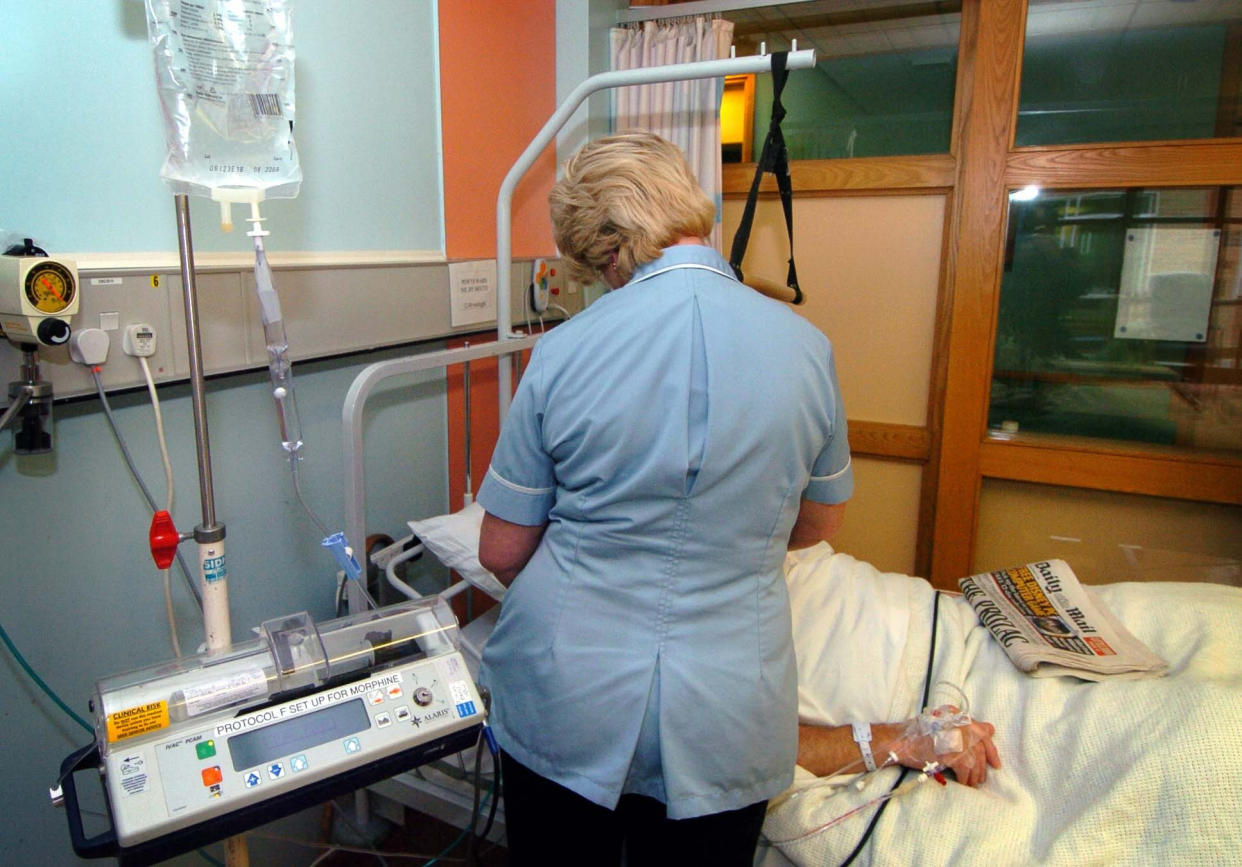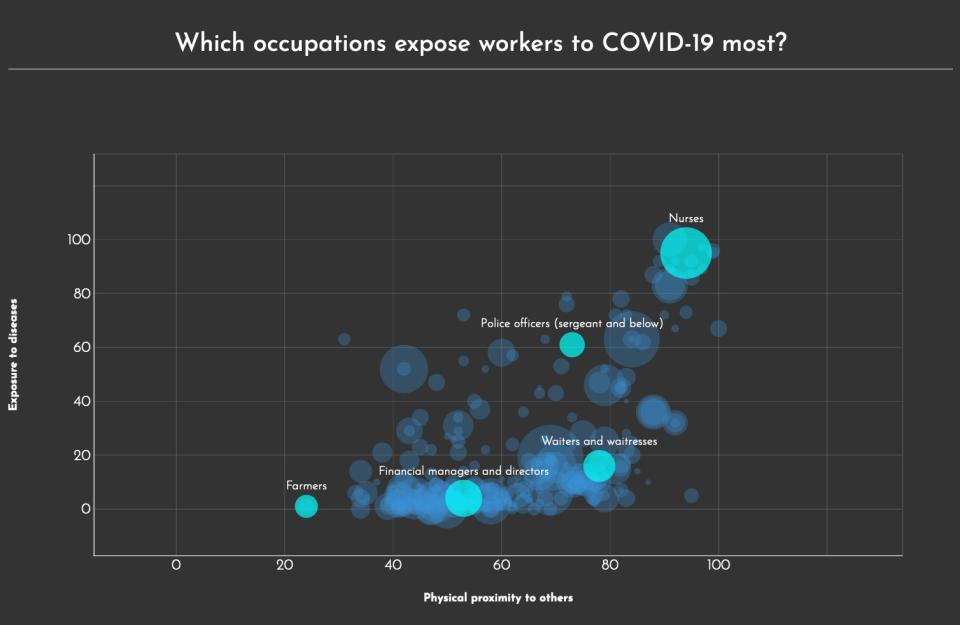Coronavirus: Low-paid women's jobs leave them most at risk of COVID-19 impact

The vast majority of workers most at risk of catching the coronavirus are female and in low-paid work, a new study suggests.
Researchers think tank Autonomy analysed which UK jobs involve most physical contact with others and most potential exposure to infections.
A total of 11 million people are in roles that put them at risk from the virus, according to Autonomy.
The most at-risk roles include nurses, pharmacists, nursery staff, animal care and several other health jobs where a majority of workers are female.
READ MORE: NHS and supermarket staff can delay leave as holiday rules torn up
The study identified 3.2 million high-risk roles and found around 2.5 million of the workers were female, making up more than three-quarters of the total.
Just under 1.1 million of those at risk are in low-wage jobs such as care work, where the gender gap is even starker. The lowest-paid roles are almost entirely – 98% – staffed by women.
“Risk is distributed unequally between men and women,” said the Jobs at Risk Index published on Monday.

Some of the roles deemed most at risk have disproportionately male workforces, however, including doctors, prison and police officers.
Some 22 of 28 vulnerable occupations identified are classed as key workers.
“Many of these workers will still have to be working even in a ‘lockdown’ situation. These workers are indispensable at the moment and are at the same time those most vulnerable to COVID-19,” the research noted.
Reports even emerged on Monday of some hospital staff hiding personal protective equipment (PPE), amid anger over shortages of supplies for frontline staff.

 Yahoo News
Yahoo News 
